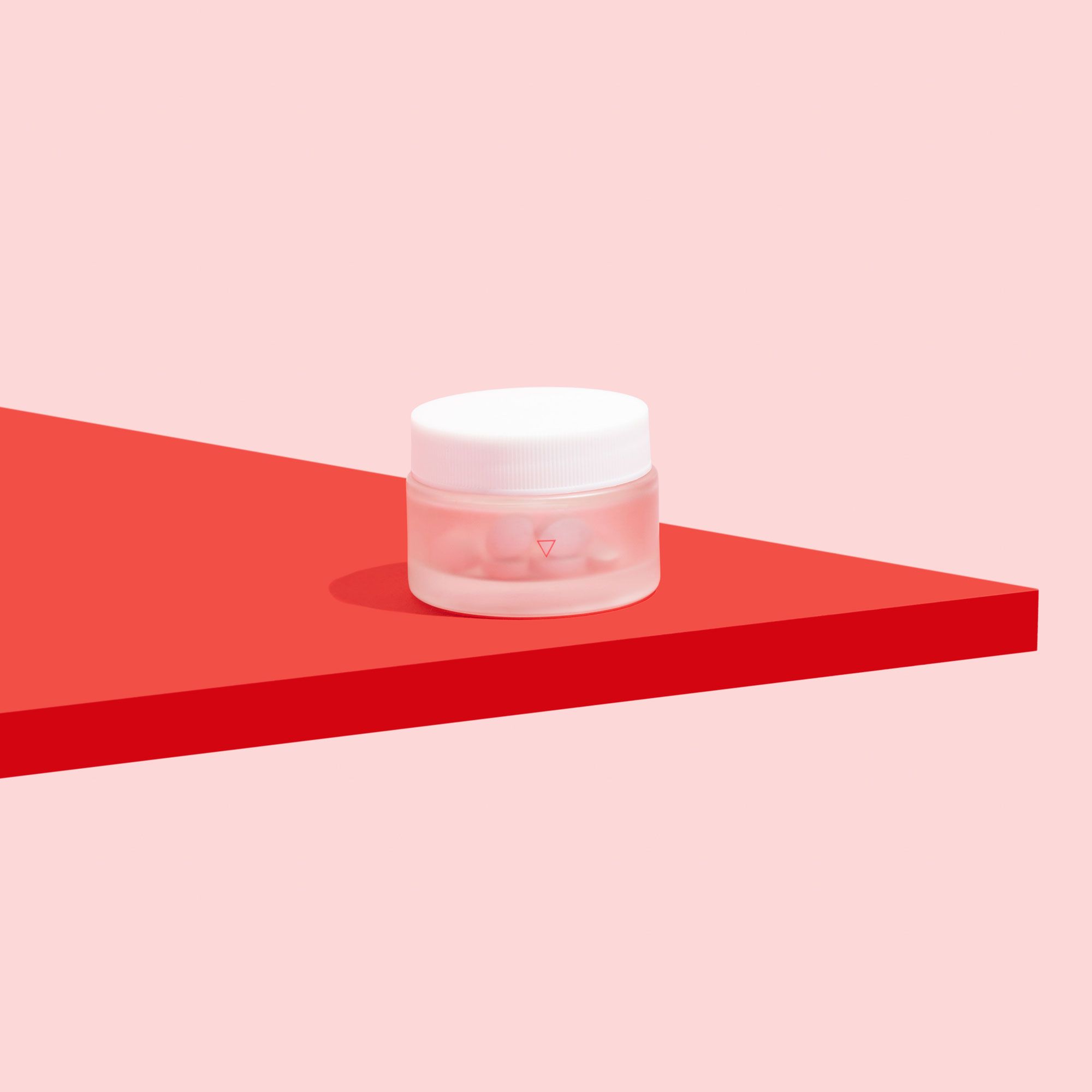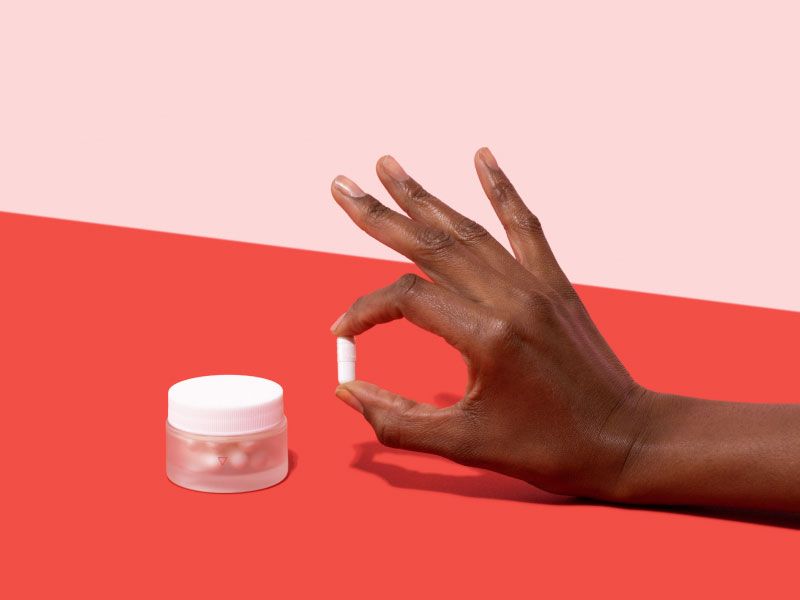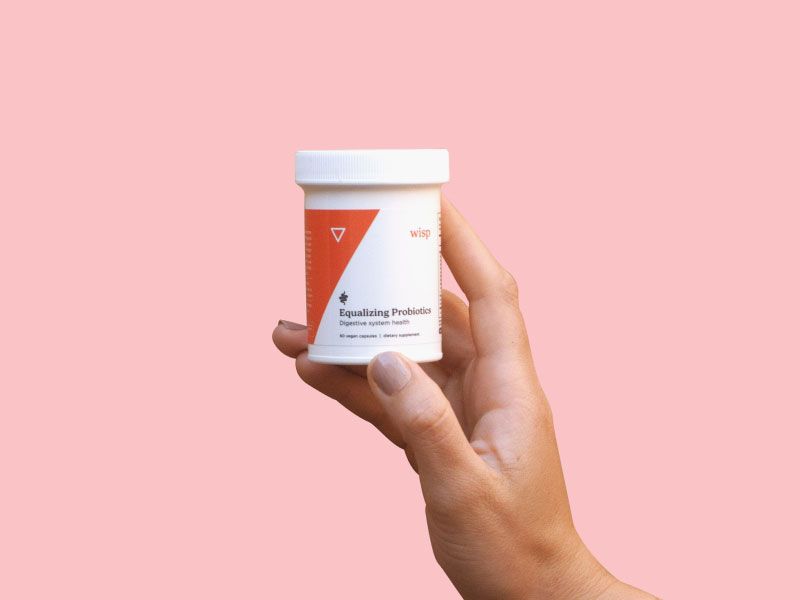
Untreated Yeast Infection:
What Happens If You Ignore It?
Published on June 17, 2021
Updated on April 11, 2025
Written by Kathleen Morrison
Medically Reviewed by Andrea Sleeth WHNP-BC, MSCP
Yeast infections can be annoying, but completely ignoring them doesn’t always make them go away—sometimes, it just gives them more time to make life uncomfortable. That lingering itch? The irritation that won’t quit? It’s your body’s way of telling you it needs a little extra care.
Some yeast infections clear up on their own, but others might stick around or even get worse, making symptoms harder to ignore. In some cases, they can even lead to more intense discomfort or spread to other areas.
The good news? Getting ahead of it is simple, and treatment is easier than dealing with days (or weeks) of unnecessary irritation. You can get back to feeling like yourself—itch-free and in control.
Why You Don’t Want to Ignore a Yeast Infection
Yeast infections can be annoying, uncomfortable, and sometimes even sneaky—flaring up, fading, and then coming back just when you think you’re in the clear. So, if symptoms feel mild, it might be tempting to just wait it out. But here’s the thing: untreated yeast infections can lead to bigger headaches (and more itching).
What happens if you skip treatment?
A lot of people try to treat vaginal yeast infections at home, or not at all. But a lingering yeast infection isn’t just about discomfort—it can start messing with your daily life. Constant itching from Candida fungus (or anything else, really) can make it hard to focus at work, enjoy a night out, or even get a good night’s sleep.
Some people avoid social plans, exercise, or intimacy because they just don’t feel great in their body. And while yeast infections are super common, struggling in silence doesn’t have to be.
Can an untreated vaginal yeast infection cause other issues?
In some cases, yes. Scratching irritated skin can create tiny tears, which might make it easier for bacteria or other infections to move in.
If your immune system is already working overtime, an untreated infection can add extra strain. And while it’s rare, yeast infections can become more serious if they spread beyond the surface of the skin.
Long-term frustrations nobody wants
Beyond the physical discomfort, a recurrent yeast infection affects your confidence, your mood, and even your sex life.
Discomfort during intimacy? Not fun.
Sleep interrupted by itching? Also not fun.
And if infections keep coming back, it can start to feel like an endless cycle. The good news is that you don’t have to just suck it up, and it's usually pretty simple to treat a yeast infection. Getting the right care early on can make all the difference so you can feel like yourself again.
Can a Yeast Infection just… go away?
Can a yeast infection disappear on its own—like a bad haircut that just needs time?
In a lot of cases, mild infections can clear up when your body finds its balance again, especially if you’re making small changes like skipping sugar or swapping out tight clothes.
But here’s the catch: yeast infections can be sneaky. Symptoms might ease up during the day, only to come back with a vengeance at night. That stop-and-start cycle can trick you into thinking it’s gone when it’s really just lying low.
Will it fix itself?
It depends. Some people bounce back faster than others, especially if their immune system is on top of things.
But if you’ve had yeast infections before, you know that hoping for the best doesn’t always work. Left alone, an infection can stick around longer than you’d like—or come back worse. This is why it's best to just treat yeast infections as they pop up.
So, what’s the best move?
Prescription antifungals for yeast infection can be a good option when it comes to yeast infection medicine, but the first step is making sure you’re actually dealing with a yeast infection (because other things can feel very similar). That’s where a chat with your healthcare provider comes in—helping you skip the guesswork and get the right treatment.
Bottom line? Yeast infections don’t always vanish on their own, and waiting it out can mean more discomfort in the long run. The sooner you handle it, the sooner you’ll be back to feeling like yourself again.
Wisp treatment options are available only after consultation with a licensed medical professional. You should consult with your healthcare provider before starting a new supplement or treatment regimen. Individual results may vary.
Daily Habits for Vaginal Health
Your everyday routine plays a bigger role in vaginal health than you might think! Simple choices—like wearing breathable cotton undies or cutting back on sugary drinks—can help keep things feeling balanced.
Gentle, fragrance-free feminine hygiene products are another easy switch. When your body’s natural environment is in a good place, infections are less likely to show up uninvited.
It also helps to pay attention to early signs, like subtle itching, so you can make small adjustments before things get uncomfortable. Even basic habits, like changing out of sweaty gym clothes right after a workout, can make a big difference.
And if you’ve got kids or teens at home, talking openly about these habits now can set them up for lifelong comfort and confidence.
Comfort strategies that might help
Some people find certain everyday products soothing when dealing with irritation.
- Plain yogurt with live cultures (no added sugar!) is a popular choice, often used to support overall balance.
- Coconut oil has natural moisturizing properties that may help with dryness.
- Some also try diluted apple cider vinegar or baking soda baths for a little extra comfort.
Everyone’s body reacts differently, so it’s always good to pay attention to what feels right for you.
Lifestyle shifts for long-term balance
Remember that a well-fed body is a happy body! Eating a variety of nutrient-rich foods, adding probiotics, and keeping stress in check may help support vaginal balance.
Regular movement—whether it’s yoga, dancing in your kitchen, or a daily walk—also supports overall well-being. And don’t forget the basics: breathable fabrics, clean personal care items, and making sure workout gear gets fresh air instead of staying damp in a gym bag.
At the end of the day, vaginal health isn’t about perfection—it’s about finding small, sustainable habits that help you feel your best.
When to Check In with a Doctor
It’s not always easy to know when to reach out for extra support—but trust your gut (and your vagina).
If yeast infections keep showing up, it might be worth getting things checked out. Sometimes, what seems like a yeast infection is actually something else, like bacterial vaginosis or a skin condition. A quick chat with a healthcare provider can take the guesswork out of what’s going on and point you toward the right next steps.
If symptoms stick around for more than a week or get worse—even after trying over-the-counter options—it’s a good idea to check in. Here are some signs that it may be time to reach out and see a doctor:
- You’re dealing with frequent or recurring infections. If yeast infections keep coming back, there could be an underlying issue worth exploring.
- Your symptoms don’t improve with home care. If things aren’t getting better (or they’re getting worse), a healthcare provider can help figure out why.
- You’re experiencing extreme discomfort. More severe symptoms like intense itching, swelling, burning, or pain—especially during intimacy or when peeing—are all worth a closer look.
- You’re not sure it’s actually a yeast infection. Some conditions have similar symptoms, and a professional can help confirm what’s going on.
A provider may recommend a yeast infection prescription treatment or run tests to make sure nothing else is at play. Beyond medications, they can also suggest lifestyle shifts or products that support vaginal health and long-term balance.
If recurring infections are getting in the way of your comfort, confidence, or even your sleep, don’t wait—getting clarity now can save you a lot of frustration later. Taking charge of your health isn’t just smart—it’s self-care.
Ditch the itch, ASAP
When symptoms start to shift, it’s always a good idea to tune in and listen to your body.
Speaking up when something feels off can save you from unnecessary discomfort down the road. Taking quick action to handle a yeast infection makes it easier to get back to your usual routine without that annoying itch or the stress of wondering what’s going on down there.
Wisp is here to offer discreet, compassionate care that helps you stay in control of your sexual health journey. By taking charge and reaching out for help early, you’re doing yourself a favor in avoiding bigger setbacks and staying confident in your body. A small step now can bring long-term comfort and peace of mind.
Frequently asked questions (FAQ):
What are the symptoms of a serious yeast infection?
A serious yeast infection might show up with severe itching, burning, thick white discharge, and swelling or redness in the affected area. Some people experience sharp discomfort that can make everyday activities feel pretty uncomfortable.
What can happen if you don’t get a yeast infection treated?
Ignoring a yeast infection can make the irritation worse and, in some cases, it could spread to other parts of the body. Though it’s very rare, yeast can also enter the bloodstream, leading to more serious health concerns.
How do you flush yeast out of your system?
To address yeast, antifungal treatments (prescribed or over-the-counter) are the go-to. Keeping blood sugar balanced and sticking to healthy hygiene habits also helps your body stay in harmony. Some people find probiotics helpful for supporting gut health.
Will a yeast infection go away if I ignore it?
While a mild infection might clear up on its own, ignoring persistent or worsening symptoms can lead to more problems. Reaching out for treatment is a good idea to avoid additional discomfort and future complications.
This blog post is for informational and educational purposes only and should not be taken as professional advice. Always consult with a qualified professional before making any decisions based on the information provided here.

Diflucan, Generic Fluconazole (Yeast Antifungals)
Prescription antifungals used to treat vaginal yeast infections
Starting at $45.00
Get Started
Vaginal Health Consult
Private, online vaginal health consultation.
One Time Consult $45.00
Get StartedBeyond Discomfort
Avoiding yeast infection treatments is akin to rolling out the welcome mat for more severe complications beyond the typical itching they’re commonly associated with. When Candida strike, they can majorly irritate the skin. Over a short period of time, this can mean open sores and bleeding that is exacerbated when we give in to the itch. Infected wounds, swelling, sores, and cracked skin have a high probability of only getting worse the longer we wait to seek effective treatment, and can leave you vulnerable to STIs.
Reproductive Ramifications
We’re not saying yeast infections are a form of birth control, but, left untreated and/or recurring, infections can cause grief when we are ready to start having children. Because yeast infections affect vaginal pH and vaginal flora, long-term infections have the potential to thicken the mucus lining in our vaginas and even our cervixes. For sperm traveling towards the fallopian tubes, this can be a major impediment. Trust us: an ounce of yeast infection treatment today can be worth a pound of cure when we’re trying to conceive.
Increased Risk For Our Intimate Partners
Yeast infection treatments can also protect those around us. Candidiasis is especially attracted to the warm folds of our skin, so yes, the vagina is especially vulnerable. But did you know infections also occur in skin folds on our stomachs, breasts, thighs, and between our buttocks? While neither an STI nor a contagious viral infection – and also living on all our bodies, in our mouths, and our digestive systems – Candida can be transferred during intimate interactions, as well as even by sharing a toothbrush or while breastfeeding. When present in excessive amounts, such as when we have a yeast infection, we can increase the risk of others developing a yeast infection as well.
The Fastest, Most Discreet Treatment With Wisp
None of this is fun to think about, but fortunately, yeast infection treatments, like Diflucan (Fluconazole), have never been more effective or convenient. Whether it’s a prescription antifungal tablet, proactive reproductive probiotics to maintain vaginal balance, or preventative boric acid suppositories that promote vaginal acidity and healthy flora, these treatments are readily available. They can ease the symptoms of infection almost immediately, and chronic infections can also be curbed. And forget the pain of a doctor’s visit and time-consuming trip to the pharmacy. At Wisp, our licensed medical providers are here for you 24/7 via a simple online message. Your yeast infection meds are delivered free of charge in discrete, unmarked packaging right to your door, or they are available for same-day pickup at your local pharmacy. Don’t wait for relief.


